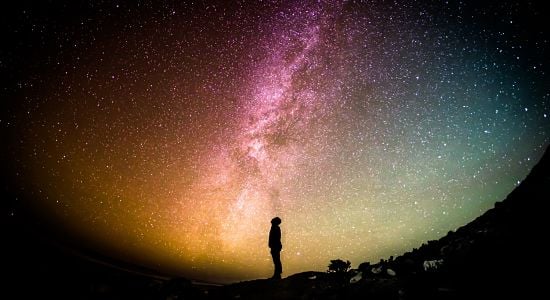Can a Modern Scientist Believe in God and Miracles?
One of the most popular, mistaken beliefs is that one cannot believe in a personal, creator God and miracles and be a credibly credentialed scientist. I have heard “talks” and read articles and books that more or less state this falsehood as a given, a presupposition. It is certainly a popular opinion.
However, just as there has been an upsurge of belief in God, even the God of the Bible, among philosophers, so there has been an upsurge of open belief in God and even miracles among notable scientists.
For the most part in the media we only hear about two allegedly strongly opposed groups: serious scientists (Carl Sagan, Stephen Hawking) who don’t believe in God and fundamentalists whose science credentials are dubious at best.
However, this is a false dichotomy. The evidence of a third group—credibly credentialed scientists who believe in the Christian God, practice orthodox Christianity, and believe in miracles as scientists as well as as Christians. In other words, they believe modern/contemporary science does not rule out miracles.
*Sidebar: The opinions expressed here are my own (or those of the guest writer); I do not speak for any other person, group or organization; nor do I imply that the opinions expressed here reflect those of any other person, group or organization unless I say so specifically. Before commenting read the entire post and the “Note to commenters” at its end.*
Now, obviously, readers are going to want names. Here are some. Look them up. Ian Hutchinson of MIT, Ard Louis of Oxford University, Denis Alexander of Cambridge University, Francis Collins of the Genome Project and National Institutes of Health, John Polkinghorne of Cambridge University (retired).
There are several professional organizations of orthodox Christians who are credibly credentialed, scholarly scientists. (That means scientists who have earned doctoral degrees from accredited universities and who have published science articles in peer-reviewed scientific journals.) The Faraday Institute at Cambridge University is one. The organization BioLogos (which includes biblical scholars and theologians) is another one. The American Scientific Affiliation is yet another one.
It may be that modern, credibly credentialed scientists who are orthodox Christian believers are a minority within the larger academy, but the names I have given here are just a few of the many credibly credentialed scientists who are orthodox Christian believers and who do reasonably defend belief in the creator God of the Bible and miracles as compatible with the best of modern/contemporary science.
None of those I have mentioned or that I would refer to as in this category are “young earth creationists” or anti-evolutionists. Most are theistic evolutionists. They are physicists, chemists, and biologists who either teach or have taught at major research universities. They give the lie to the common notion—held among both conservative Christians and secularists—that Christianity and science must necessarily be at war with each other.
*Note to commenters: This blog is not a discussion board; please respond with a question or comment only to me. If you do not share my evangelical Christian perspective (very broadly defined), feel free to ask a question for clarification, but know that this is not a space for debating incommensurate perspectives/worldviews. In any case, know that there is no guarantee that your question or comment will be posted by the moderator or answered by the writer. If you hope for your question or comment to appear here and be answered or responded to, make sure it is civil, respectful, and “on topic.” Do not comment if you have not read the entire post and do not misrepresent what it says. Keep any comment (including questions) to minimal length; do not post essays, sermons or testimonies here. Do not post links to internet sites here. This is a space for expressions of the blogger’s (or guest writers’) opinions and constructive dialogue among evangelical Christians (very broadly defined).













